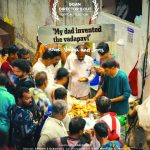DM Deshpande
Promises made by political parties before elections are breeding a dangerous culture of freebies in India. What was once an isolated symptom has now become a systemic disease with state after state, party manifestos promising the moon for gaining electoral advantage.
Fiscal concessions were earlier confined to a very few vulnerable groups; now freebies cover the entire universe. The very idea of political governance is undergoing a huge makeover. Parties no longer compete on reforms. Instead they compete on how liberal one is in distributing taxpayers’ money to a select few sections of the electorate. As in George Orwell’s farm ‘all are equal but some more equal’.
The line of distinction between public welfare and freebies is getting blurred. But the distinction exists. Welfare builds capacity while sops create dependency. Welfare programs like MNREGA (Rural Employment Guarantee), health insurance schemes and robust educational services give long term social returns that benefit both the economy and the people. Freebies shift focus from performance to persuasion.
In a competitive populism scenario governments find no incentive to improve governance and administration, improve tax collection or focus on creating a conducive environment for investment that can generate permanent and sustainable jobs for youths. The Election Commission of India (2023) acknowledged that pre-poll freebies distort equality of voters and electoral integrity.
Election related sops have had a huge detrimental impact on the fiscal health of several states. To take the latest example of Bihar, its own tax revenue this year is budgeted at a mere 5.3 per cent of the state GDP. Last year the state’ fiscal deficit was 9.2 per cent.
Already there is a ‘charge’ of 42 per cent of the budget on committed expenditure on salaries, pensions and interest payments, which in other words is debt servicing. Unmindful of this ground reality both NDA, which has swept the polls by securing an unexpected huge majority, and Mahagathabandhan have announced a slew of freebies in their respective manifestos.
The NDA has promised to generate one crore jobs, one crore lakhpati didis (women in self help groups), financial assistance of up to Rs 10 lakh for EBC’s, three cash transfers in a year to farmers totalling Rs 9,000, fishermen too to get two cash transfers of Rs 4,500 each annually, free medical treatment up to Rs 5 lakh, free electricity up to 125 units, among others.
Ahead of polls, on September 26, as many as 75 lakh women’s accounts were credited with Rs.10,000 under CM’s employment scheme. Under the CM’s Mahila Rozgar Yojana 1.5 crore women are enrolled. The estimated cost of covering the pre poll promise is Rs 15,000 crore.
The Mahagathbandhan too tried to woo the electorate in all possible manner. It promised a government job in every family, implementation of the old pension scheme, turning self help group women into government employees with a monthly salary of Rs 30,000, a monthly stipend of Rs 2,500 to all women, a 2000 acre education city and the like.
After the heat and dust of the election are settled, it is time to redo the fiscal math; the freebies bill is expected to cost Rs 28,000 crore. Though early days, there is already a suggestion to revisit the prohibition law enacted in 2016. In the year 2015-16 alcohol sales yielded a revenue of over Rs 3,000 crore to the state.
Allowing for a rise in prices in the last eight plus years, the revenue collections would definitely be higher. This will be more than adequate to at least cover one commitment made to farmers for direct transfer of money into their bank accounts. However, Nitish Kumar’s government will find it very difficult to reverse the prohibition decision, given the wide support he has received from the women voters.
It is another matter that prohibition itself may not have served its main purpose. It has only pushed alcohol sales underground. Worse, it has made the entry of unscrupulous elements easier to enter production and sale of spurious and adulterated liquor easier resulting in deaths of several hundreds of poor in Bihar.
Karnataka and Maharashtra are two other states that went to polls earlier. Here again, free electricity, transport, and cash transfers were assured to groups of voters. In 2023 Karnataka voters were given five guarantees, which became a template for others to follow in elections in Delhi, Maharashtra and other states.
The Comptroller and Audit General (CAG) report 2025 points out how a revenue surplus state of Karnataka slipped into a state with revenue deficit of Rs 9,271 crore in a single year. The fiscal deficit ballooned to a huge Rs 65,522 crores! In a desperate fire fighting measure, the state cut its capital expenditure by Rs 5,229 crore. This is a classic example of sacrificing future interests for current
consumption.
The Niti Ayog’s Fiscal Health Index, confirms the decline of Karnataka, once a fiscal model, from third position to tenth in its report. The fall predates the current government which goes to show the malady is well entrenched and bipartisan.
The solution to the vexed problem is not easy. It will not come from the judiciary. There is a precedent of a Supreme Court 2013 order which ruled that ‘irrational freebies’ cannot be viewed as ‘corrupt practice’. A new deficit development grant is proposed in the budget for FY 26 that links part of the central grants to fiscal prudence and capex targets. The finance commission needs to rework the formula to provide a greater incentive to fiscally well managed states irrespective of their own ability to raise revenues.
Increasingly, freebies pose a moral hazard problem that dismantles the social and political contract. Equity and justice are put on the back burner. Politicians continue to announce giveaways which actually is akin to a tax on the future. Intergenerational justice suffers as future generations have to pay for past freebies. Educating the electorate is a lasting and permanent solution for curbing self serving interests.
The author has four decades of experience in higher education teaching and research. He is the former first vice-chancellor of ISBM University, Chhattisgarh




